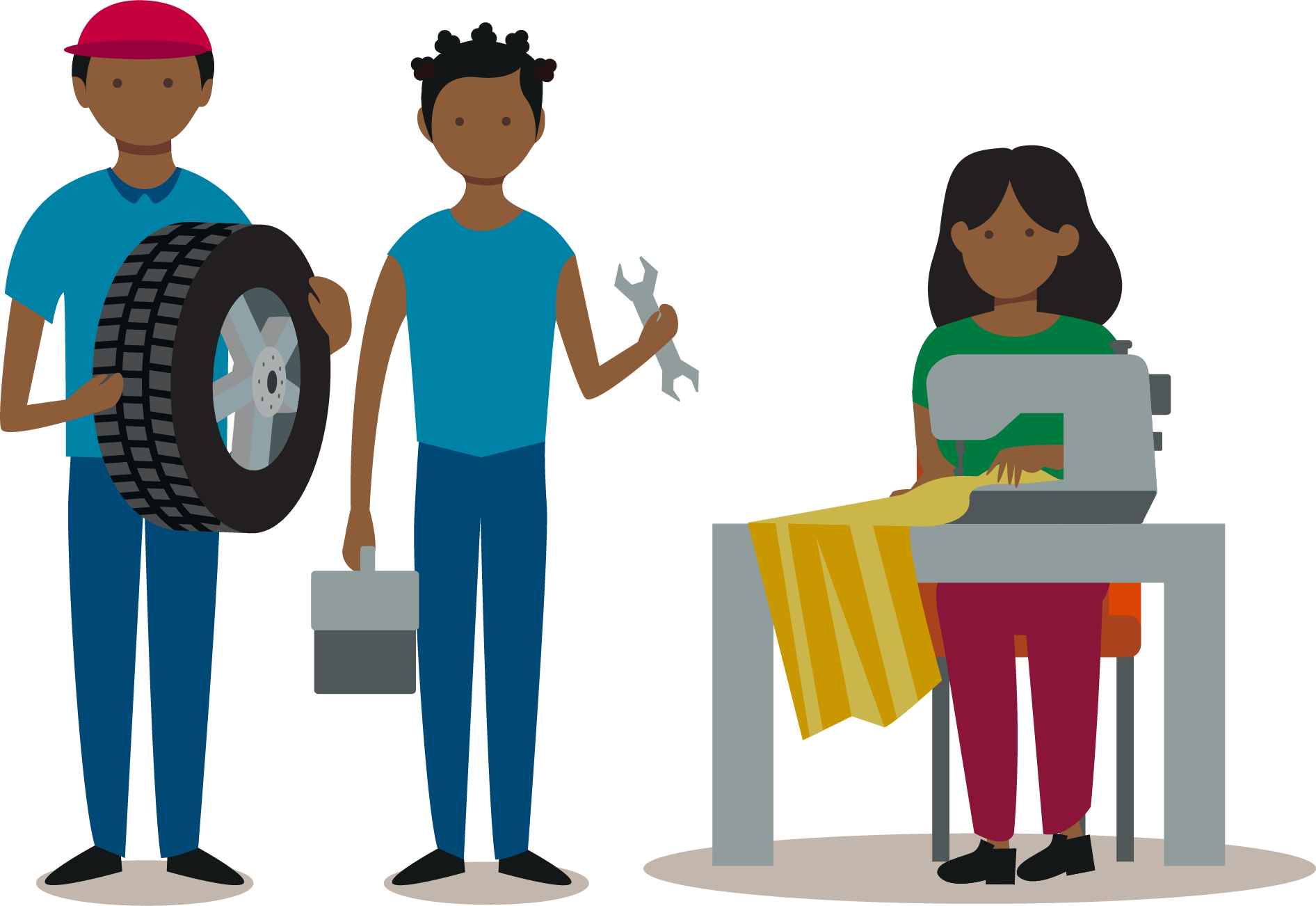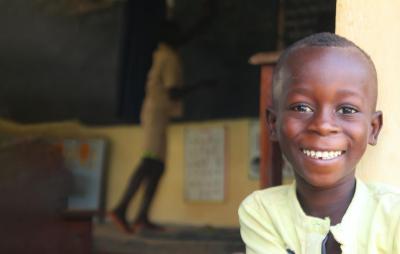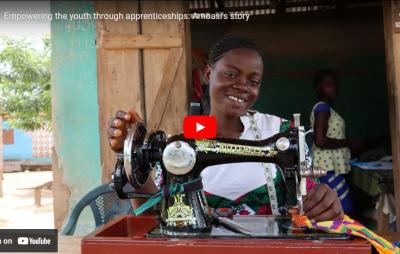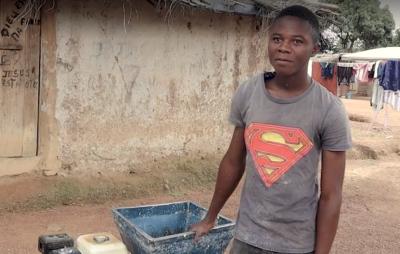Investing in older children’s education is essential to tackling child labour.
Children aged 15 to 17 in cocoa-growing communities are most at risk of hazardous child labour. They are more likely than children of other age groups to engage in work that threatens their health and safety such as applying chemicals, carrying heavy loads, cutting cocoa trees, or burning fields.

Hazardous child labour is high among older children as there are often barriers to education or a lack of educational opportunities.
Many of the communities where ICI operates in Côte d'Ivoire and Ghana lack post-primary educational opportunities, such as secondary schools or technical and vocational education. As a result, older children often have to travel long distances or stay with family members or friends, which can involve additional costs.
Poor families often struggle to afford registration fees, when applicable (school is free in Côte d’Ivoire and Ghana between the ages of 5 and 15 but higher education or vocational training may have costs), school supplies, food, uniforms, and accommodation for older children who have to stay elsewhere during the week to attend high school or apprenticeship programmes far away.
In Côte d’Ivoire, 27% of women are married before the age of 18, in Ghana this figure is 19%. When girls and women marry young, they are more likely to drop out of school to take on domestic duties or care for children.
Many older children may also not want to continue studying and would rather start working to support themselves and their families.
As a result of these barriers to educational opportunities, older children in cocoa growing communities in both Ghana and Côte d’Ivoire have the lowest school attendance rates of all age groups. They instead turn to cocoa farming or other activities to bolster their household’s income or strengthen their own skills, despite the high likelihood that they will be exposed to hazardous labour.
Apprenticeships
Strengthening older children’s access to educational opportunities including secondary school, post-secondary school, technical and vocational education and training, and apprenticeships, is essential to reduce child labour and poverty in cocoa-growing communities, advance their life prospects, and protect their human rights.
ICI works with its partners in cocoa-growing communities throughout Ghana and Côte d’Ivoire to help older children access apprenticeship programmes. Through such training programmes, older children can be equipped with skills that will help them be economically active and independent in the future, help support their families and reduce the prevalence of child labour.
Our data shows that combining interventions designed to help develop youth's skills with awareness-raising sessions can significantly help improve their effectiveness in tackling child labour. Find out more here.



